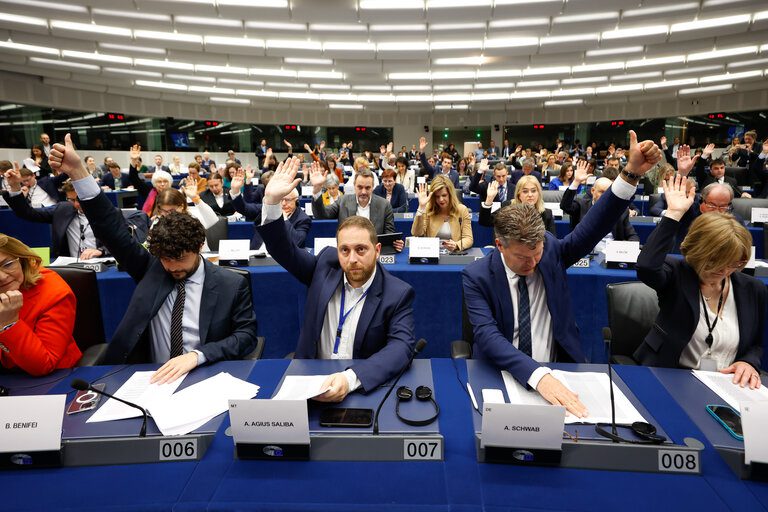
IMCO Committee—Vote on Harmonised rules on ARtificial Intelligence (artificial Intelligence Act)
The EU looks likely to pass landmark AI legislation next month, making it the world’s first AI rulebook. The wording of the bill, which is meant to dictate the development of AI technology, easily passed the European Parliament’s committee stage Thursday, May 11th.
MEPs from the Parliament’s civil liberties and internal market committees signed off on the AI Act, with 84 votes in favour and seven against. Lawmakers added eleven new clauses banning the use of new technology to discriminate against individuals.
In a quickfire meeting Thursday, May 11th, MEPs amended the Act to prohibit predictive policing, the use of social credit scores, and to curtail the use of biometric surveillance.
The adoption paves the way for approval by the European Parliament at a plenary session in Brussels next month. From there it will head to the European Commission and Council for the final rubber stamps.
If passed, companies would be given a two-year grace period to comply with the new rules. For its action, Brussels has been accused of throwing its weight around to set the tone on AI regulation worldwide, putting innovation growth at risk, creating a regulatory barrier between Europe and the rest of the world, and preventing consumers from benefiting from the AI revolution.
Human rights groups had voiced their concern that new technology could be used for border security, with legislators hoping to enshrine risk management protocols and human oversight into any future AI development. Centre-right MEPs from the EPP similarly battled to reduce any potential overburden on businesses.
Under the Act companies will be obliged to divulge the copyright status of technology used to develop new products.
🚨Breaking! @EP_Justice & @EP_SingleMarket adopts the #AIAct, the world's first broad rulebook on AI!
— Renew Europe (@RenewEurope) May 11, 2023
It establishes a common definition for AI & sets ground rules to minimize the risks & maximize the benefits of AI
Details: @IoanDragosT & @Svenja_Hahn👇🏾https://t.co/WjGAoXgXSl
Broadly happy with the new amendments, executive director of the advocacy group NBIC Ethics, Laetitia Pouliquen, nevertheless claims there is room for improvement regarding some of the definitions and ethical scope of the AI Act.
Terms like AI system’s life cycle, Auditability, Bias, Reproducibility, Human-Centric AI should be defined to give the final regulation a precise and actionable meaning. There is still room to improve in that realm. Moreover, standards, conformity, quality management, technical and organisational measures to ensure the protection of intellectual property and trade secrets and internal control are at the centre of the committee’s efforts, lacking a certain perspective over more profound ethical issues.
AI regulation has been a headache for Eurocrats, as previous attempts at codifying the bloc’s legislative response were immediately nullified by advances such as GPT software.
Legislators have been juggling innovation and privacy concerns throughout the process with the EU accused of trying to regulate technologies not yet fully understood. The ethical and political dilemmas posed by AI technology came to the fore with ChatGPT, whose platform has been accused of inserting ideological biases.
Hadrien Pouget, a research analyst with the Carnegie Endowment for International Peace, writes that the EU is struggling to bite the regulatory bullet on AI and apply unrealistic standards to technology outside of its control.
